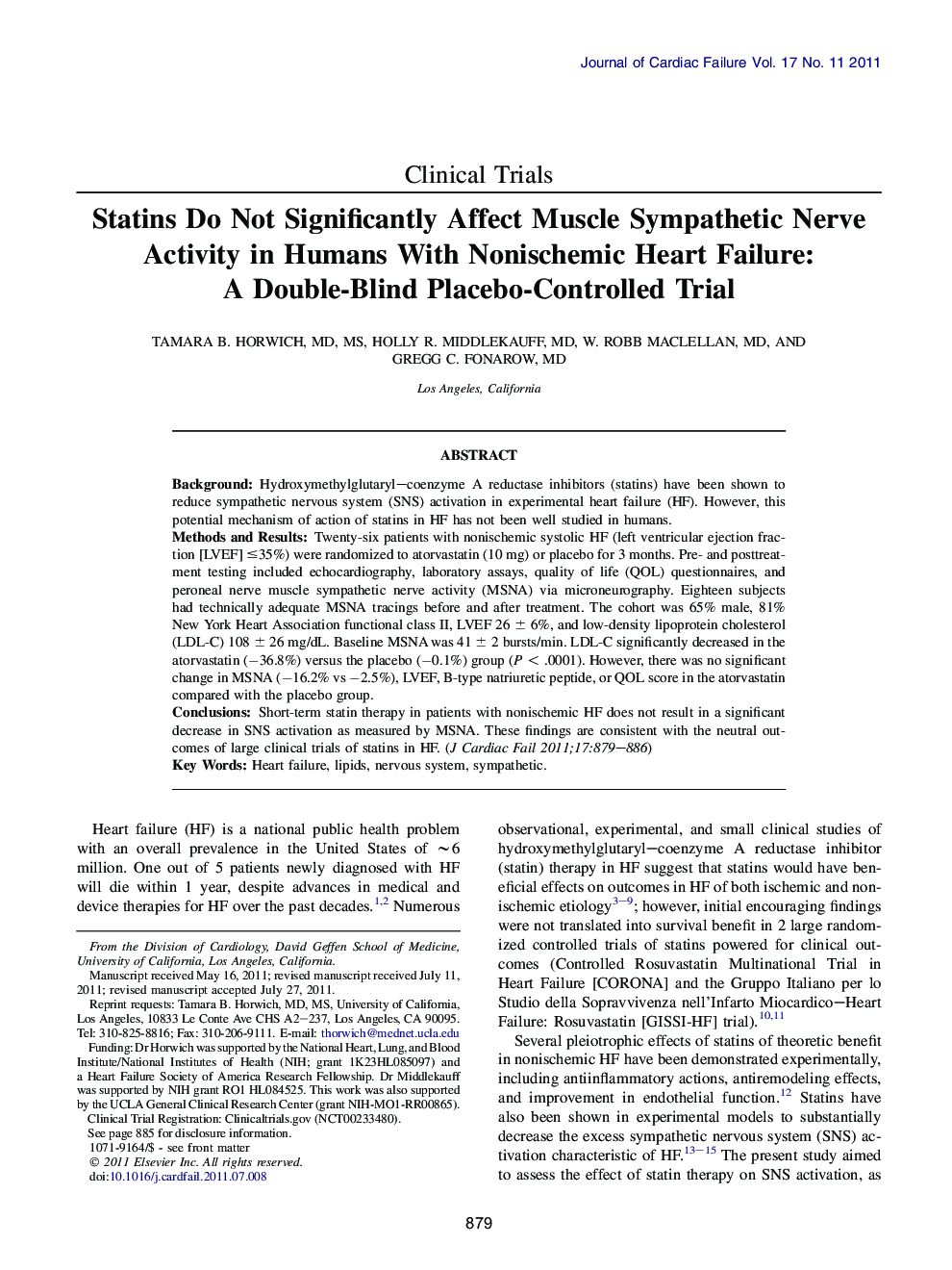| Article ID | Journal | Published Year | Pages | File Type |
|---|---|---|---|---|
| 2960660 | Journal of Cardiac Failure | 2011 | 8 Pages |
BackgroundHydroxymethylglutaryl–coenzyme A reductase inhibitors (statins) have been shown to reduce sympathetic nervous system (SNS) activation in experimental heart failure (HF). However, this potential mechanism of action of statins in HF has not been well studied in humans.Methods and ResultsTwenty-six patients with nonischemic systolic HF (left ventricular ejection fraction [LVEF] ≤35%) were randomized to atorvastatin (10 mg) or placebo for 3 months. Pre- and posttreatment testing included echocardiography, laboratory assays, quality of life (QOL) questionnaires, and peroneal nerve muscle sympathetic nerve activity (MSNA) via microneurography. Eighteen subjects had technically adequate MSNA tracings before and after treatment. The cohort was 65% male, 81% New York Heart Association functional class II, LVEF 26 ± 6%, and low-density lipoprotein cholesterol (LDL-C) 108 ± 26 mg/dL. Baseline MSNA was 41 ± 2 bursts/min. LDL-C significantly decreased in the atorvastatin (−36.8%) versus the placebo (−0.1%) group (P < .0001). However, there was no significant change in MSNA (−16.2% vs −2.5%), LVEF, B-type natriuretic peptide, or QOL score in the atorvastatin compared with the placebo group.ConclusionsShort-term statin therapy in patients with nonischemic HF does not result in a significant decrease in SNS activation as measured by MSNA. These findings are consistent with the neutral outcomes of large clinical trials of statins in HF.
